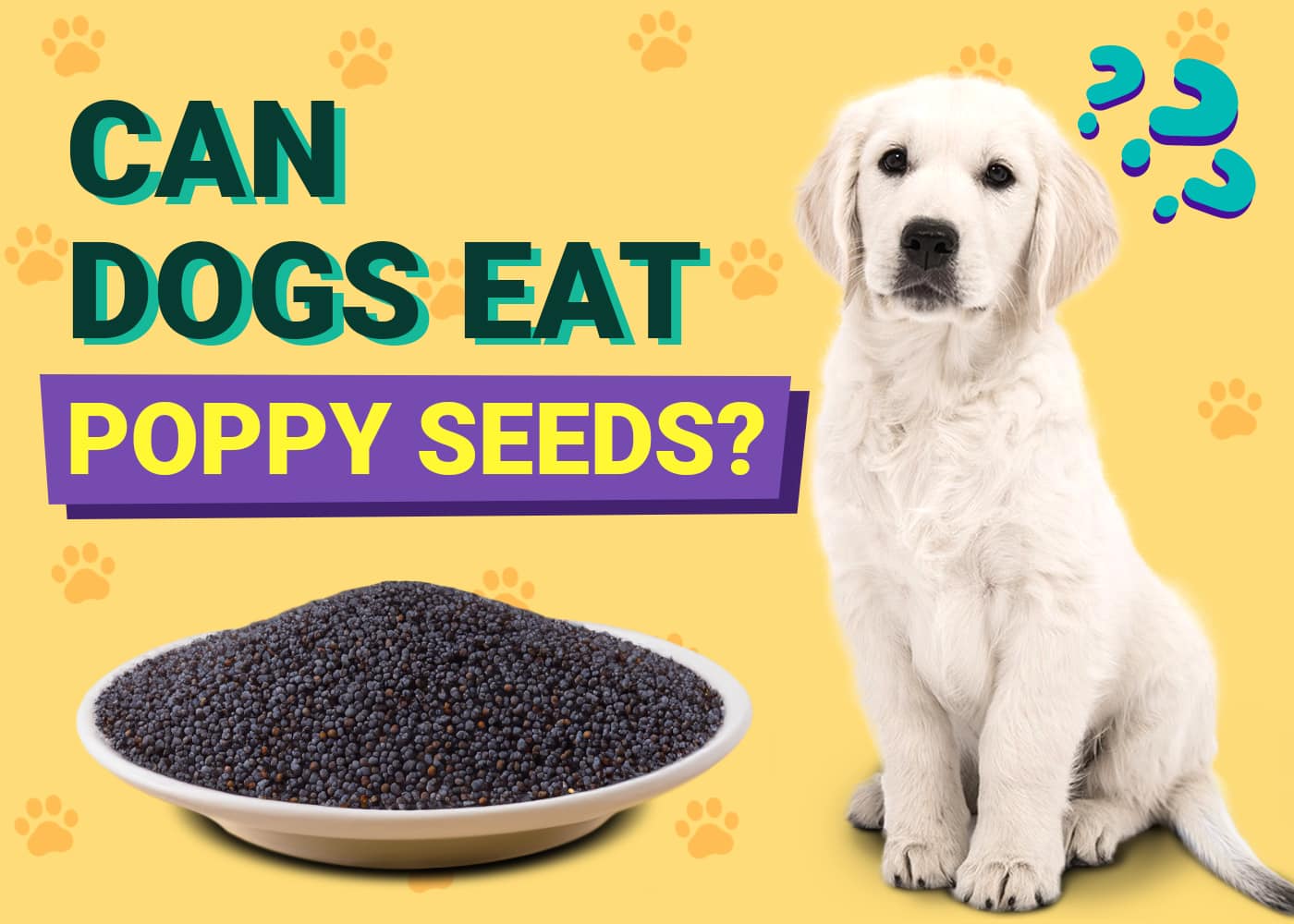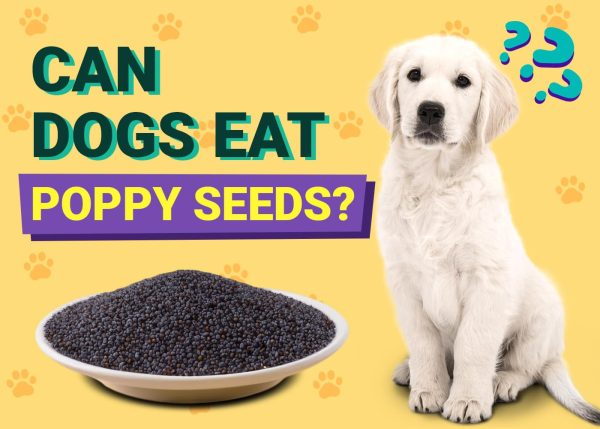Click to Skip Ahead
In the world of pet ownership, it’s essential to know what foods are safe for your dogs and which ones are not. Poppy seeds are a common ingredient in muffins, bagels, and on salads, for example. One question that often pops up is, “Can dogs eat poppy seeds?” The short answer is no. According to the Pet Poison Helpline, poppy is toxic to dogs and can lead to serious health complications. Although the seeds themselves aren’t toxic, it’s still not a good idea for dogs to consume them. Let’s learn more.
Poppy Seeds and Dogs
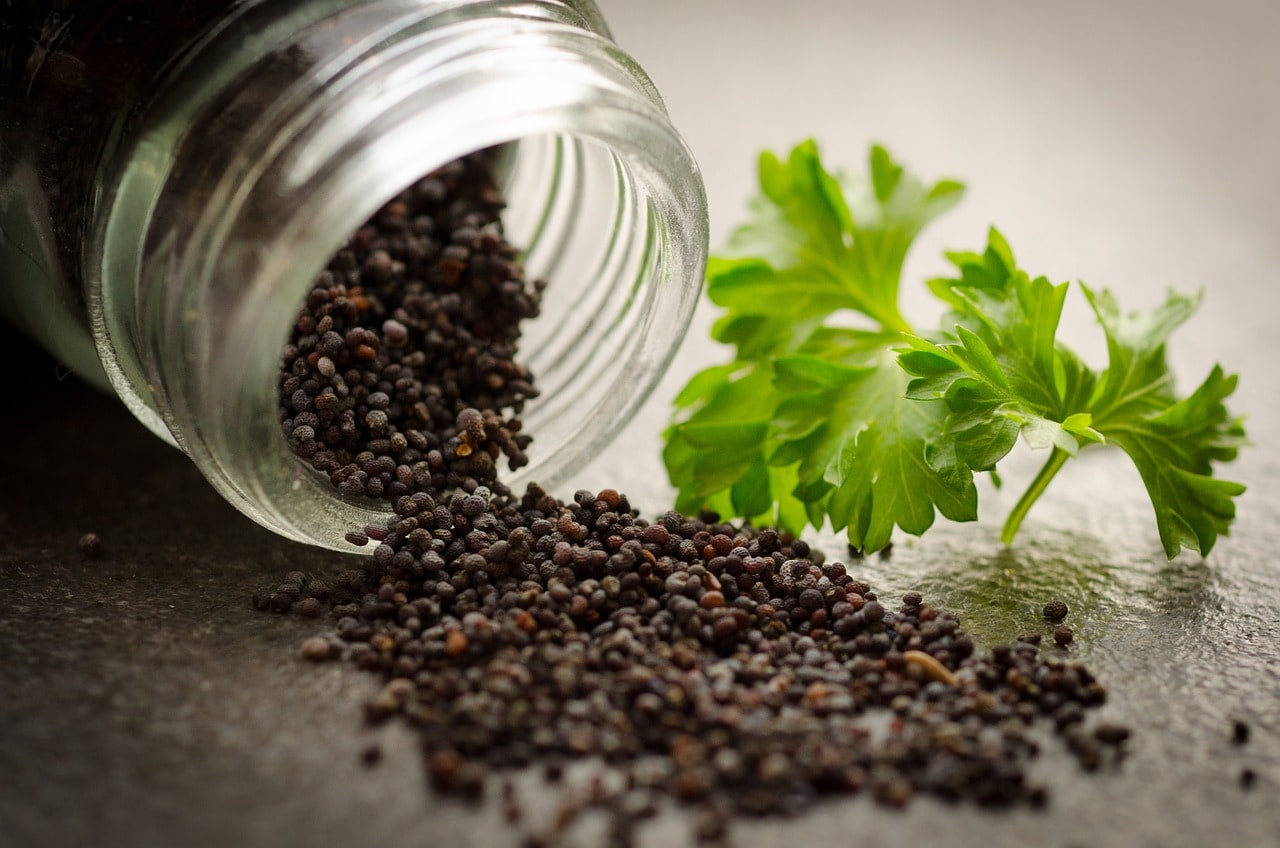
While many human foods are safe for dogs, poppy seeds are not among them. Poppy seeds come from the poppy plant, which contains narcotic substances, including morphine and codeine. The poppy seed itself is not toxic and doesn’t contain opium, however, the seeds can become contaminated with the milky sap of the poppy plant – which does contain opium – during harvesting. The substances can lead to poppy poisoning in dogs, a condition that can be serious and even life-threatening.
That being said, eating a few small poppy seeds isn’t likely to harm your dog. However, it’s still not a good idea for your dog to eat them, especially in large amounts, in case they do have some of the residue from the poppy on them that contains opiates.
Signs of Poppy Seed Toxicity
If a dog consumes a large amount of poppy seeds, they may experience no side effects or they may exhibit a range of side effects, depending on the amount consumed. Early signs might include changes in appetite, behavior, and pupil size. More severe signs could include sedation, lack of coordination, slowed heart rate, and lack of appetite. In extreme cases, consumption of poppy seeds can lead to respiratory failure and death.
Responding to Poppy Seed Ingestion
If you suspect your dog has consumed poppy seeds and is displaying any unusual signs or behaviors, it’s crucial to contact your veterinarian for advice. The faster you react, the better your dog’s chances of recovery. Your vet may induce vomiting, administer activated charcoal to absorb the toxins, or provide supportive care like fluids and oxygen therapy, depending on the severity.
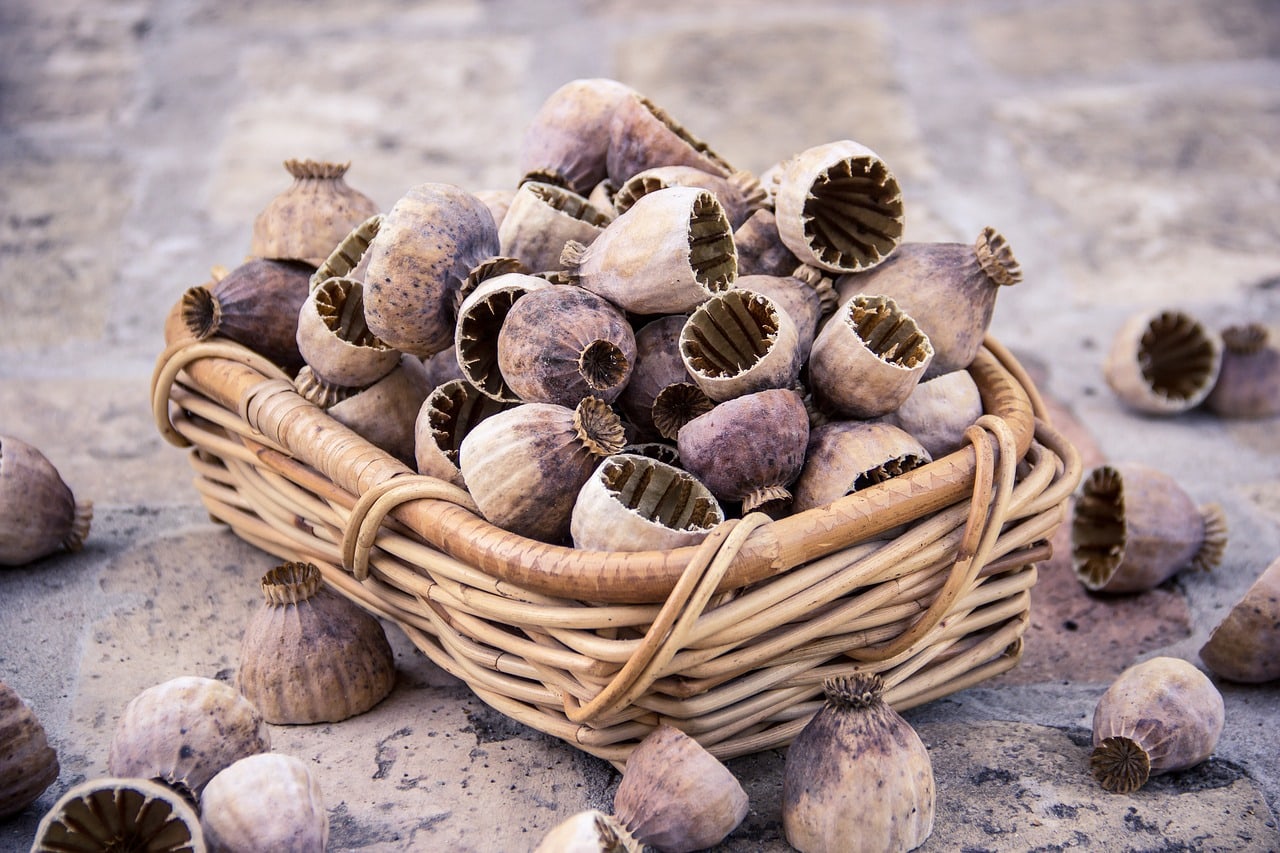
Preventing Poppy Seed Consumption
The best way to prevent poppy seed consumption is to keep any food containing poppy seeds out of your dog’s reach. This includes baked goods, salads, and other dishes. It’s also important to educate yourself about other toxic or potentially toxic foods and keep those away from your dog as well. Remember, just because food is safe for humans doesn’t mean it’s safe for dogs. Always check before sharing your food with your furry friend.
Understanding Dog Nutrition
To ensure your dog’s health and longevity, it’s vital to understand the basics of canine nutrition. Dogs, like humans, require a balanced diet that includes various nutrients, each serving a unique purpose. The main components of a dog’s diet are proteins, carbohydrates, fats and oils, vitamins and minerals, and water. Let’s delve into each of these components to better understand their significance in your dog’s diet.

Protein Needs
Proteins are fundamental to a dog’s diet. These macronutrients provide the essential amino acids necessary for growth, tissue repair, immune function, and the creation of essential hormones. Proteins are often referred to as the building blocks of life, and for good reason—they form parts of cells, tissues, enzymes, antibodies, and hormones.
Dogs, especially active breeds, require a protein-rich diet to support their energy needs and muscle maintenance. High-quality animal-based proteins, such as chicken, beef, fish, and eggs, should form the core of a dog’s diet. These sources provide complete proteins, meaning they contain all the essential amino acids your dog needs.
While dogs can survive on plant-based proteins, they thrive on meat-based diets. This is because plant proteins don’t contain all the essential amino acids dogs need, and they’re less digestible compared to animal proteins.
Carbohydrate Requirements
While dogs don’t technically need carbohydrates to survive, these nutrients play a valuable role in a balanced canine diet. Carbohydrates provide a readily available source of energy, helping to fuel your dog’s active lifestyle.
In addition to providing energy, carbohydrates contribute to gut health by supporting a healthy digestive system. Certain types of carbohydrates, known as dietary fiber, aid in digestion and can help manage weight by promoting feelings of fullness.
Good sources of carbohydrates for dogs include whole grains like brown rice and oats, vegetables such as sweet potatoes and peas, and fruits like apples and blueberries. However, it’s important to avoid feeding your dog too many carbohydrates, as excess carbs can lead to obesity and other health issues.
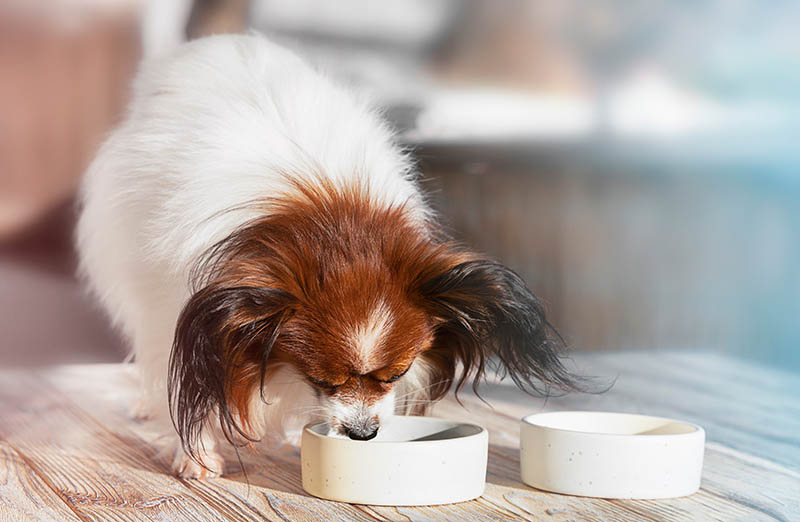
Fats and Oils
Fats and oils are another crucial part of a dog’s diet. They are the most concentrated source of energy, providing more than twice the energy of proteins or carbohydrates per gram. Fats and oils also aid in the absorption of fat-soluble vitamins (A, D, E, and K), contribute to skin and coat health, and enhance the taste of food, making it more appealing to dogs.
Essential fatty acids, such as omega-3 and omega-6, are particularly important for maintaining your dog’s overall health. These fats support brain function, reduce inflammation, and promote a shiny, healthy coat. Good sources of healthy fats for dogs include fish oil, flaxseed oil, olive oil, and chicken fat.
Vitamins and Minerals
Vitamins and minerals play key roles in numerous biochemical reactions in your dog’s body. They’re necessary for a wide range of functions, including bone development, wound healing, nerve function, blood clotting, and maintaining a healthy metabolism.
Each vitamin and mineral has a specific role, and deficiencies or excesses can lead to health problems. For instance, calcium and phosphorus are crucial for strong bones and teeth, while iron is needed for healthy red blood cells. Vitamins like A, E, and C have antioxidant properties that help protect the body’s cells from damage.
Hydration
Just like humans, dogs need to stay adequately hydrated for their bodies to function correctly. Water aids in digestion, nutrient absorption, and temperature regulation. It also helps lubricate joints, maintain healthy skin and coat, and flush toxins from the body.
A dog’s requirement for water can depend on various factors, including their size, diet, activity level, and the climate they live in. As a general guideline, dogs should drink about one ounce of water per pound of body weight each day. Always ensure your dog has access to fresh, clean water.
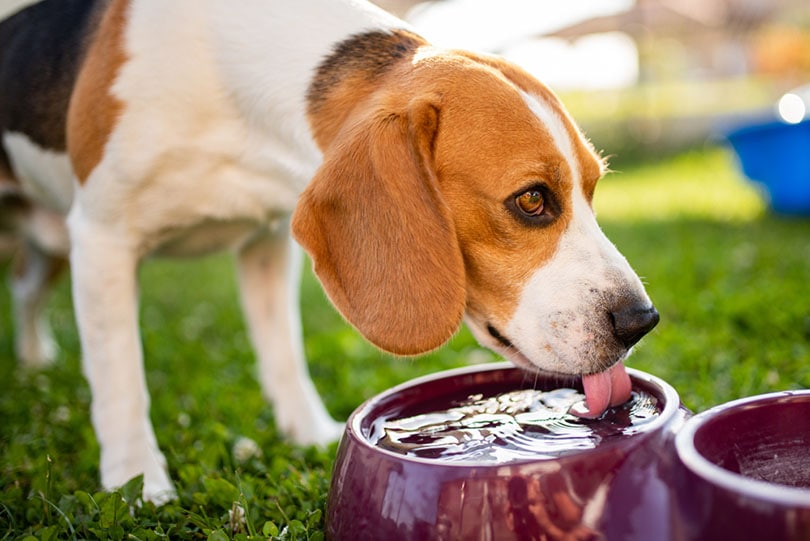
Frequently Asked Questions
Do the signs of poppy toxicity vary based on the amount consumed?
Yes, the severity can vary depending on the amount of poppy or poppy seeds consumed and the size and breed of the dog.
How long after eating poppy seeds would a dog show signs?
Signs can appear within a few hours of ingestion, but this can vary depending on the individual dog and the amount consumed.
Is there a specific treatment for poppy seed toxicity in dogs?
Treatment typically involves supportive care and managing side effects, but your vet will provide the best course of action.
Conclusion
Navigating the world of dog nutrition can be complex, but by arming ourselves with the right knowledge, we can make informed decisions about our dogs’ diets. Although poppy seeds don’t contain opium, there is the potential for poppy sap-containing opiates to be on the seeds. Understanding the potential dangers of foods like poppy seeds is a crucial part of this journey. As pet owners, our primary goal is to ensure our furry friends lead safe, fulfilling lives – and that means knowing what’s on their plate.
See also:
Featured Image Credit: Piqsels

